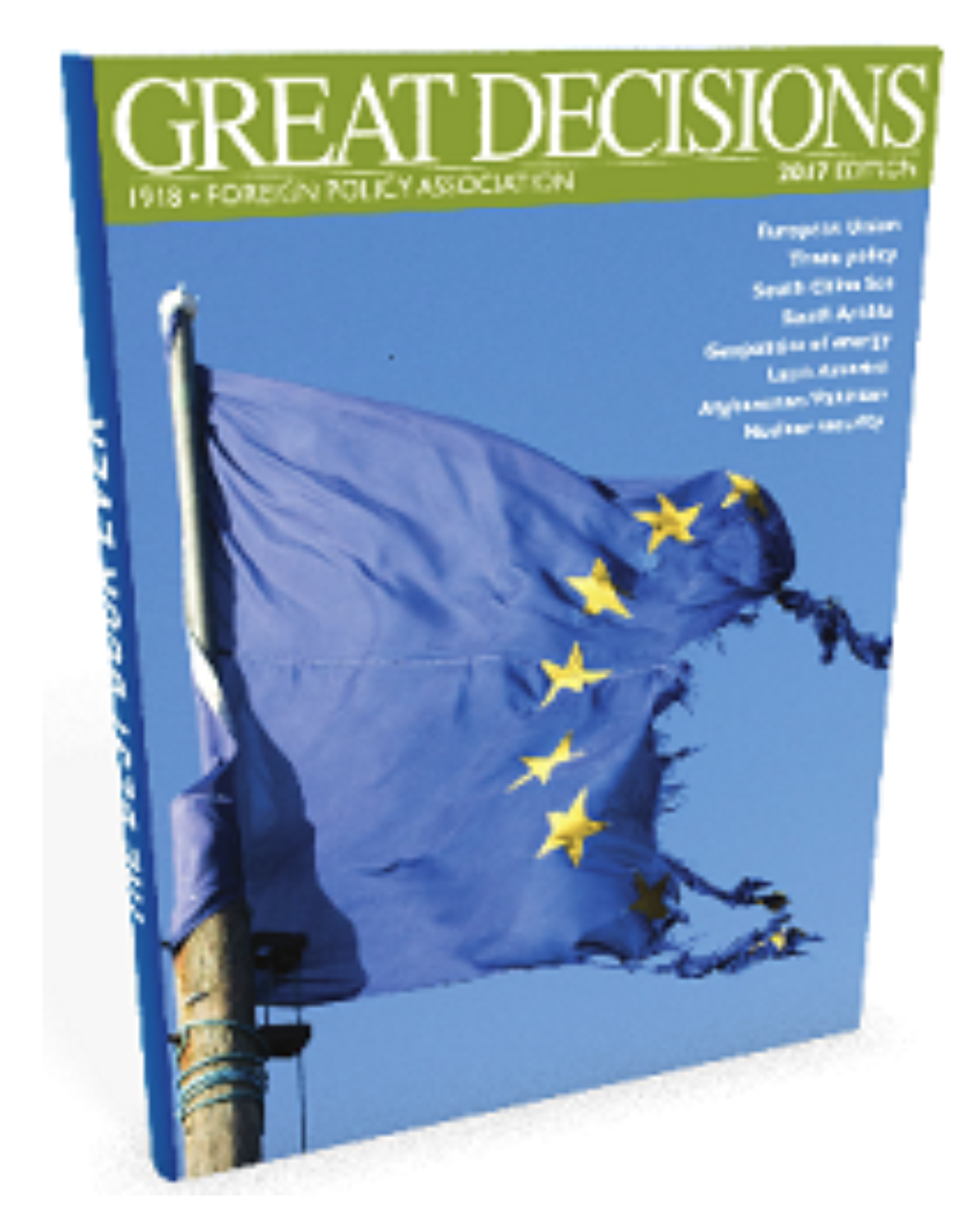By Gopika Nair, Editor-in-Chief
If global warming becomes a major issue or alternate fuels are developed, Saudi Arabia’s economy will suffer, according to a former energy consultant.
To diversify Saudi Arabia’s economy, King Salman bin Abdulaziz Al Saud drafted the Saudi Vision 2030, said Rand Guebert, a former Oilinvest B.V. consultant. The objective of the vision is for Saudi Arabia to be “a pioneering and successful global model of excellence,” according to the Vision 2030 website.
Guebert said Salman is trying to get Asian countries to invest in his country to diversify the Saudi economy, while helping Asian countries diversify as well. Guebert and Melinda McClimans discussed Saudi Arabia in transition as part of the Great Decisions lecture series March 3 at the William Street United Methodist Church.
Saudi Arabia faces many challenges, such as oil production, water scarcity and national defense issues, and has been in a state of transition for the past 60 years, according to Guebert.
Oil was discovered in Saudi Arabia in 1938, years after Iran (1908), Iraq (1924) and Bahrain (1932).
Before the 1960s, Saudi Arabia produced about 1 million barrels of oil a day because of low demand. But by the 1960s, the demand spiked. As a result, Saudi Arabia began producing 10 million barrels of oil a day, Guebert said.
In the early 1980s, Saudi Arabia competed with Russia and the U.S. and oil prices dropped dramatically.
“One of the things to remember about this production is it’s very cheap,” Guebert said. “Saudi Arabia is the lowest cost oil producer in the world and costs about $5 a barrel.”
In the 1980s, however, the price went up to nearly $40 per barrel.
“All of a sudden, [the Saudis] had huge amounts of money coming in,” Guebert said. “So this transformed what was still a desert society.”
Today, the price of oil per barrel is $53, but in the current economy, that price isn’t pro table but it is stable, according to Guebert.
Saudi Arabia spends almost 10 percent of its annual revenue budget on national defense, which is nearly twice what the U.S. spends, Guebert said.
McClimans, assistant director of the Middle East Studies Center at The Ohio State University, focused on Saudi Arabia’s religious perspective.
Saudi Arabia is the heart of Islam, McClimans said. Though Islam started as an Arab phenomenon, it has expanded to Persian and Turkish territories and is now a multicultural religion.
McClimans, who lived in Saudi Arabia for a few years, said the country’s government is grounded in “pure Sharia law.”
But there are caveats, McClimans said. For instance, during the holy month of Ramadan when Muslims are required to fast, if someone needs to take medication with food, that’s permissible.
“[What I found most interesting] is that Saudi Arabia’s under pressure to get into the modern world,” said Oluf Kongshaug, a local retired Presbyterian minister. “Now that the U.S. is producing more oil, what’s Saudi Arabia going to do if they don’t have us as a customer?”
